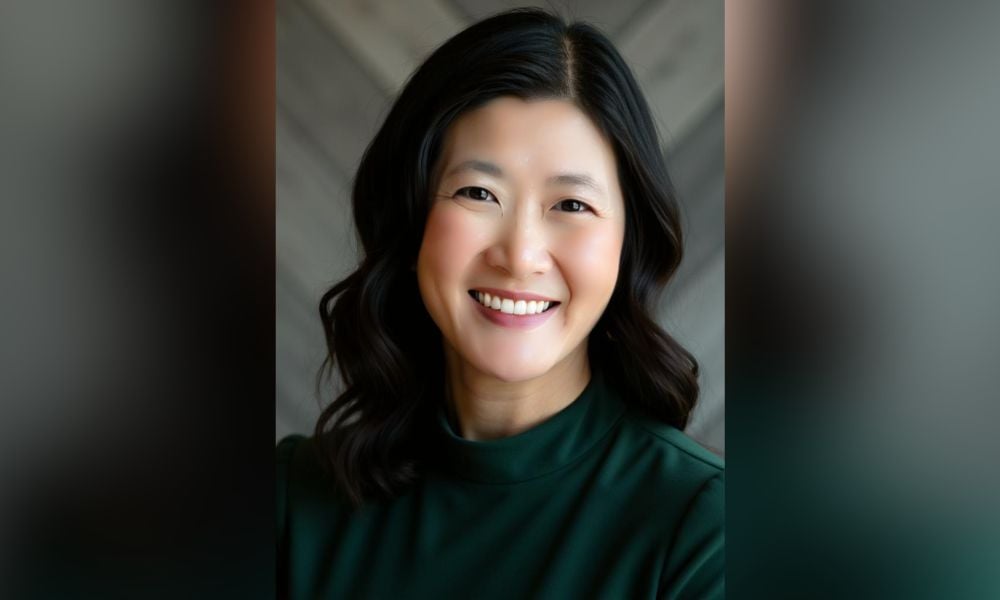In a recent episode of CL Talk, Canadian Lawyer’s podcast, Stephanie Leung, senior legal counsel at Enbridge, shared her perspective on the evolving role of in-house counsel, the importance of Indigenous partnerships in the energy sector, and the operational and cultural innovations shaping legal teams today. Leung discussed how Enbridge’s approach to collaboration, diversity, and legal operations is redefining expectations for both in-house and external counsel. She also addressed the challenges of navigating market volatility, driving inclusion, and leveraging technology responsibly. Leung will speak on these topics at the Canadian Legal Summit 2025 in Toronto on October 9.
Below is a summary of the conversation:
“Enbridge’s approach to Indigenous partnerships is helping to define the energy sector’s future,” says Stephanie Leung, senior legal counsel at the company, who has spent more than 15 years advising on commercial transactions and infrastructure projects. She sees the company’s recent work with Indigenous nations as a model for legal teams to drive both business value and social impact.
Leung’s career began in private practice, but after five years at a national law firm, she was drawn in-house by the opportunity to work at the intersection of law, business, and innovation, and found Enbridge’s need for construction and procurement expertise matched her background. “The fit seemed really good, and I thought that it was a great company to work for,” she says.
“For about eight years, I practised solely in construction procurement. I decided I wanted an opportunity to draw more into the commercial space.” For the last three years, she has worked on the commercial side, including shipper contracts and M&A deals. “It’s really given me a good breadth of what our company is about,” she says.
That breadth has been critical as Enbridge navigates a sector defined by volatility and scrutiny. Leung points to the Line 3 Replacement Project as a turning point, not just for its technical complexity but for the way the company engaged various groups. “It wasn’t just about the work itself, but how Enbridge approached our stakeholders, the land owners, the Indigenous groups, to get this done… It’s one of those projects where you were expecting to be a lot of conflict and difficulty, but because of the excellent work that we had at our leadership team with our project and our consultants and contractors, it turned out a lot easier and a lot better than we expected,” she says.
The Seven Stars Energy Project, a partnership with five Indigenous nations and a Métis nation to build a wind farm in southern Saskatchewan, pushes that model further. The Indigenous consortium (Six Nations Energy Development Limited Partnership) has an opportunity to earn a collective interest of at least 30% in the project. “We get to really partner with them to build this project… we are equal partners together in building this project, and it’s for the long term. This would be a project that’s for 20 or 30 years and will bring value to Saskatchewan and really help to diversify our energy sources, something that Enbridge is passionate about,” she says.
Enbridge’s internal culture mirrors this approach, especially in diversity and inclusion. The company’s Canadian Legal Mentorship Program, which won Diversity Initiative of the Year at the Canadian Law Awards, was born from a recognition that access and opportunity were not equally distributed. “We weren’t seeing the diversity and the support for… Indigenous and Black law students, and that they weren’t really having an opportunity to interact with lawyers that would be very beneficial for them as they’re trying to find the next job, where they want it to go,” she says.
Leung helped expand the program into Alberta. “It became a passion when I became a mentor and mentee, and I decided it was something I wanted to expand into Alberta… We were very privileged to have won the award. It was our third year in total, but second year for both chapters in Edmonton and Calgary. And the feedback that we got from the students on how helpful it was, was very meaningful to our entire organization and fits with our key value of inclusion,” she says.
The pressures on in-house counsel have intensified as the energy sector faces constant change. “One of the most difficult things that we have to deal with as in-house counsel is the ever-changing market economics. The economics of projects can vary significantly as the tariff and regulatory landscape shifts”, she says.
This volatility is reshaping the expectations of law firm partners. “We’ve been putting a lot more pressure on external counsel to find more innovative ways, [such as] alternative fee arrangements, to work with us… At the same time, the business isn’t stopping, and we’re definitely not going to be stopping our growth because of that,” she says.
For Leung, balancing business risk, regulatory complexity, and reputational concerns is rooted in collaboration and transparency. “You have to go in understanding that this is a partnership,” she says.
She stresses the importance of right-sizing legal advice and responsiveness from external partners. “We take a lot of value to not having to reinvent the wheel. So, if there is a law firm that is able to provide that right-sized advice, able to be efficient, effective, and answer concisely… we want to make sure that we are getting the advice that we are looking for. So we’re not getting a lot of extraneous things that we’re not looking for,” she says.
Internally, Leung has led innovation in legal operations, implementing tools that allow the team to focus on high-value work. “It’s really helped us to remove what we call the low-hanging fruit,” she says.
Artificial intelligence is the next step, but security is critical. “We’re definitely at higher risk for cyber attacks, and so how do we make sure that we can utilize those tools but in a way that’s very secure… [and] not allow hackers to come in and compromise [our] system,” she says.
Leung sees in-house counsel as uniquely positioned to drive diversity and inclusion, both within their organisations and in the broader legal community. “We want to bring in talent and we understand talent comes from not just diversity on paper, but also diversity of thought… one of the greatest strengths that a company can have is people of different backgrounds,” she says.
She advises young lawyers considering in-house roles to get the broadest experience possible before making the leap. “Get your years at a good law firm that does a diversity of work, because that’s what you’re going to do as in-house. Your role is to know the law, but also to know the business,” she says.
Leung’s approach is defined by a willingness to challenge assumptions and push for change, both in how legal teams operate and in the values they champion. “You’re never going to have an experience that’s 100 percent on point with a position… We’re looking for people with diverse experience because then we know that you could probably adapt.”
Leung will be speaking at the upcoming Canadian Legal Summit on October 9 in Toronto on the panel “Crisis counsel: The shifting role of in-house and the future of law firm collaboration.”
This conversation can also be found here:
The episode can also be found on our CL Talk podcast homepage, which includes links to follow CL Talk on all the major podcast providers.




